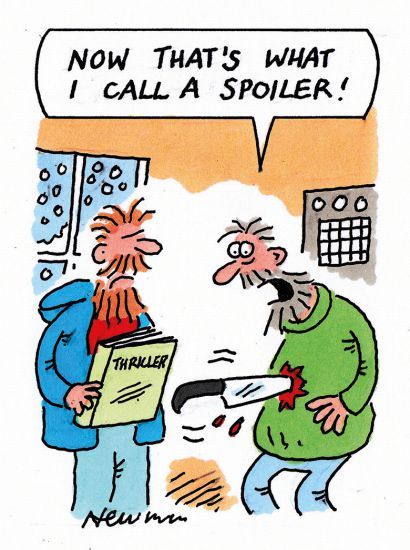
It was like the plot of a horror film: researchers cut off from civilisation hunkered down in deepest, darkest Antarctica for the winter. Tensions rise before paranoia, chaos and violence ensue. Sound familiar? Fans of the 1982 film The Thing will have seen haunting echoes in the coverage of the news that a scientist posted in Russia’s Bellingshausen research station was allegedly stabbed by a colleague wielding a kitchen knife. So what, according to investigators, might have driven Sergey Savitsky to attack Oleg Beloguzov last month? Cabin fever? Madness? Aliens? Perhaps not – reports have it that Mr Beloguzov kept giving away the ends of books that Mr Savitsky was reading. And suddenly (if these investigators have it right), it all makes sense.
The UK’s National Union of Students is in severe financial difficulty and is struggling to cover a projected £3 million deficit, according to a letter sent to its affiliated unions across the country. In the letter from president Shakira Martin and acting chief executive Peter Robertson – first published on the Guido Fawkes website – the NUS says that it is “taking urgent action to stabilise [its] position” and faces having to mortgage its main office, cut staff or stop some of its activities. “Alongside structural problems we are facing competitors in student discounts, trading support and policy and strategic support. We have faced challenges to all three of these income streams but rarely to all three at the same time,” the letter explains. The NUS said that it was exploring a “range of proposals” to “address a number of governance-related challenges”, The Guardian reported.
Stitching up a patient is a pretty basic skill for a trainee surgeon, but a professor has warned that this is now a struggle for many students – because they spent too much time in their youth in front of screens and not enough using their hands. Imperial College London’s professor of surgical education, the appropriately named Roger Kneebone, was quoted by the BBC as saying that young people had so little experience of craft skills that they struggle with anything practical, describing it as an “important and increasingly urgent issue”. “It is a concern of mine and my scientific colleagues that whereas in the past you could make the assumption that students would leave school able to do certain practical things – cutting things out, making things – that is no longer the case,” Professor Kneebone said.
At a conference in Brussels last month, Carlos Moedas, the European commissioner for research, science and innovation, floated the idea of bringing in gender quotas for university and research management positions – “at some point” in the future, anyway. Perhaps if he had been present at two Royal Society conferences last week, he would be considering pushing that plan with a bit more urgency. Carole Mundell, head of physics at the University of Bath, recalled an occasion at the start of her career when she was invited to an interview at the Jodrell Bank Observatory, where “the only diversity on the panel was whether one had a beard or not”. According to Margaret Heffernan, an entrepreneur and part-time lecturer in the School of Management at the University of Bath, “nothing has changed” in academia in the past 35 years. “We need to introduce positive discrimination,” she said.
As director of Glasgow School of Art, Tom Inns surely had one of the toughest tenures of any higher education leader, experiencing two devastating fires in the historic Mackintosh Building, the first of which came shortly after he took on the job and the second of which destroyed years of painstaking restoration work. Now the school has announced that Professor Inns has stepped down, with the outgoing head stating that it was “time for a new director to work with the board to deliver the future vision”, including the plan to rebuild “the Mack”. Muriel Gray, chair of the board of governors, said that Professor Inns “has had the most challenging tenure at the helm of GSA, and we are truly grateful for all his enormous commitment and hard work”.
Register to continue
Why register?
- Registration is free and only takes a moment
- Once registered, you can read 3 articles a month
- Sign up for our newsletter
Subscribe
Or subscribe for unlimited access to:
- Unlimited access to news, views, insights & reviews
- Digital editions
- Digital access to THE’s university and college rankings analysis
Already registered or a current subscriber? Login



